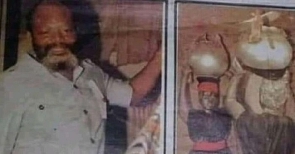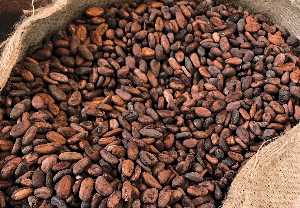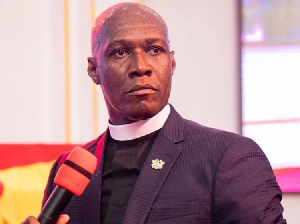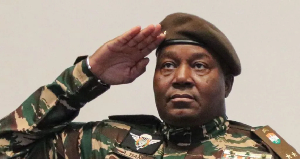By Theodore M. K. Viwotor, Manchester, UK
(Supported by DISCOVERY GROUP and LESDEP)
The United Kingdom (UK) once again proved that when it comes to football they are the true pacesetters, as they brought together three European nations to have a feel of competitive Amputee Football at the Leigh Sports Village, in Manchester over the weekend.
The two-day event held from March 31 to April 1 offered Germany, Poland, and Ireland-new entrants into the game- the opportunity to test their strength and sharpen their skills for major eventual tournaments. England amassed maximum points in the round robin event, followed by Poland, Ireland and Germany.
To the three countries, the four-nation competition was not about who won or lost but the benefits derivable for persons with disability who should in some cases be lamenting over their predicament, in line with what the President of the Ghana Amputee Football Federation (GAFF), who doubles as the President of the Amputee Football Federation of Africa (AFFA), Mr. Francis Adjetey Sowah, said at the closing ceremony of the 3rd Cup of African Nations for Amputee Football (CANAF 2011) held in Ghana last year-“In Amputee football, there is no loser, we are all winners.”
Though the mini International tournament did not attract a very large crowd at the sports village, it did make a strong impact on those who witnessed it and marked a milestone in a game that is gradually developing from leisure into a veritable means of livelihood. Ghana recently set the pace when it became the first nation to transfer three players to Turkey to play Amputee Football.
To the organizers, the England Amputee Football Federation (EAFA) under the distinguished chairmanship of Mr. Steve Johnson and his deputy, David Tweed, who are both players of their national team, the event was the country’s way of boosting the game and giving leverage to countries who, otherwise would not get the chance to play at the Amputee Football World Cup due to their inability to qualify to such competitions.
According to Mr. David Tweed, this would gradually build them up to gain the needed impetus to stand on the same platform with stronger Amputee Football nations and make the sport worth nurturing in their various countries.
Started some 30 years ago in the USA, Amputee Football has over the years developed into a strong sport among the sports for persons with disability and the flame is spreading across the world as many nations continue to join the fraternity.
In Africa, the likes of the late Robert Kalou of Liberia, Coach Samuel Armstrong Aidoo, a Ghanaian disability sport instructor, currently in the United States of America (USA) and Mr. Francis Adjetey Sowah, President of the Ghanaian and African federations and Sierra Leonean Reverend Mambud Samai, Secretary General of AFFA, among others, have played and continue to play their part in the development of the sport.
On the continent, besides Sierra Leone, Liberia, Ghana, Algeria and Nigeria, who have been part of the game for some years now, new countries are fast becoming participants of Amputee Football. At the 3rd Cup of African Nations (CANAF 2011) held in Accra, Ghana in November, Niger became one of the new entrants when they came to Ghana with a 17-man contingent to play in the competition. Though they did not win any match, it served as a useful experience to them. Kenya, another newcomer, failed to raise the capital to fly to Ghana, in spite of efforts GAFF made to get them a rebate with one of the airlines. La Cote d’Ivoire is also reported to have raised a national amputee team that would soon be participating in international competitions.
The major bane of this game of hope is the lack of funding to support events, tournaments and other welfare activities for people involved in its organization. Even in Europe, the issue of funding is a major concern to the leadership of some amputee football federations, and as a member of the German team disclosed to this writer at the mini international tournament in Manchester, the German Amputee Football Federation is still knocking on the doors of companies and organizations to help promote the game and enable them participate in local and international activities. The player said they got sponsorship from a German company to be in Manchester- something they did by road-with the promise of doing more in future but the financial burden is huge on the team.
It is in this light that the English Amputee Football Federation (EAFA)`deserve a lot of commendation for opening their doors to their counterparts to engage in friendly hostilities as their means of pushing the disability sport further forward. The fact that it was not a mandatory event like the World or European cup makes their effort very laudable and worthy of emulation.
It would interest many to know that Steve Johnson visited Ghana some years back to give players and officials orientation on the game and that fire has raged on, culminating in Ghana becoming the first African Champions of Amputee Football when they won the maiden edition of the competition in Sierra Leone in 2007.
True to what a goalkeeper of the English team said on the sidelines at the Leigh Sports Village, “We always teach people and they overtake us,” England is teaching the rest of Europe and it won’t be surprising if the rest overtake them. They taught Ghana and today, as per placement at the last World Cup in Argentina, Ghana are a step ahead of them (6th and 7th respectively).
England are on the good path and deserve commendation.
The writer is the Administrative Secretary of the Ghana Amputee Football Federation. He is also the News Editor of The Daily Democrat and a columnist of Multi Sports-a weekly sports paper
Soccer News of Wednesday, 4 April 2012
Source: theodore m. k. viwotor, manchester, uk












